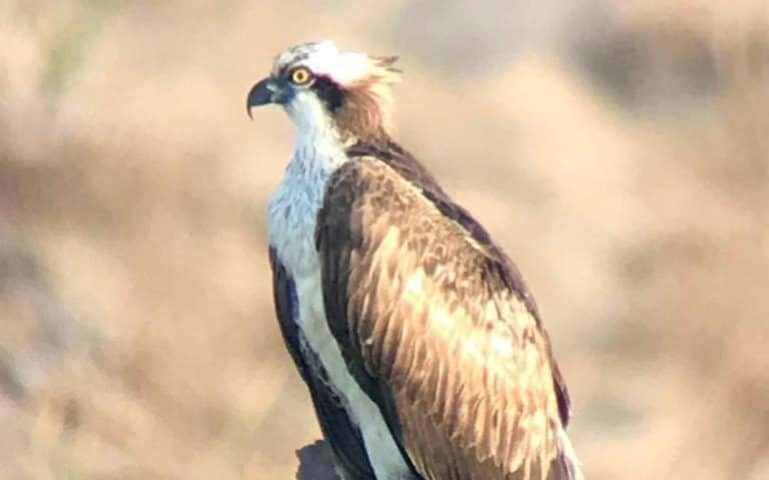Osprey chick from Dorset spotted in Gambia after being the first to make 4,000 migration from southern England in over 200 years

An osprey chick from Dorset risked drowning, starvation or being shot on its first 4,000 mile trip to Gambia, making history as the first of the species from southern England to make the perilous journey in 200 years.
The magnificent birds of prey went extinct in most of Western Europe in the 19th century because of shooting by humans and loss of habitat.
Now, they are being reintroduced across the country, with successful populations already breeding in Scotland, Northumberland and Rutland Water.
Those who visited the coast in the South of England long ago were able, if they were lucky, to spy one of the legendary birds.
Birdwatchers hope this could become a reality again, centuries later, after the chick became the first to make the journey to Africa.
The Birds of Poole Harbour group have been carefully nurturing some osprey chicks for three years, and this bird has become the first to migrate.
They were delighted when an eagle-eyed twitcher saw the bird of prey perching on a wooden stump halfway across the world.
Most ospreys don't survive their first migration as they get caught in adverse weather systems or drown, so this sighting is hugely encouraging.
Paul Morton, of the Birds of Poole Harbour, said: "The osprey is a very impressive, large bird of prey and they used to be very common across the whole of Western Europe until they were wiped out 200 years ago because of persecution and disease.
"A population was re-established in Scotland in the 1950s and now breeding programmes have seen pairs introduced elsewhere in England and Wales, but until now not in southern England.
"We started the programme to re-introduce them to southern England in 2017 and fingers crossed we will have ospreys once again breeding here.
"The first migration is very dangerous because of the threat of being shot, drowning when fishing for food and getting caught in a bad weather system.
"So when we heard that this chick had made it to Gambia we were delighted. He is not due back until the spring of 2021 but it is encouraging news."

